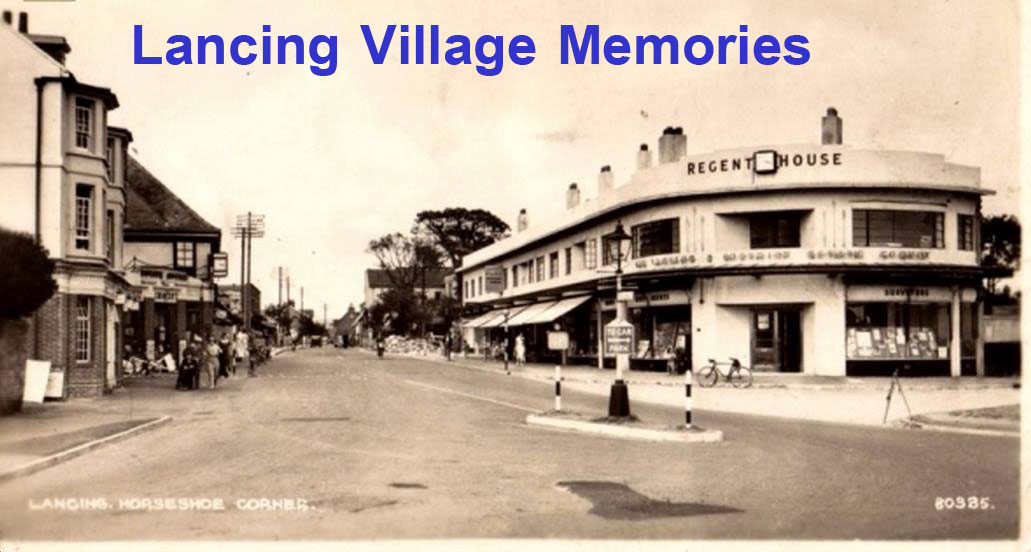I have just read all the memories of people on your website.
I went to South Lancing School both infants and juniors and then on to Irene Ave for one year and then on to Boundstone Comprehensive when it was brand new. Oh, how privileged we did feel with that school.
I have a sister who still lives in Lancing and was an usherette at the Luxor and I do visit about three times a year.
In the summer holidays, I had friends who had one of the beach huts and we used to spend many happy days on the beach. I still like to go down to the beach whenever I visit.
Jenny Shackley (nee Charman)
I was born in Lancing in 1947 at 8 Tower Road. My Dad used to work for Frank Lisher and in fact, looked after the shire horses referred to in one of George Forrest’s comments. My sisters (of which there were 4) used to go to the stables to watch the horses being fed or mucked out or get ready to go out.
My dad loved these horses dearly and whilst I don’t recall he must have been heartbroken when he did not look after them any more.
I went to South Lancing School both infants and juniors and then on to Irene Ave for one year and then on to Boundstone Comprehensive when it was brand new. Oh, how privileged we did feel with that school.
I had Mr Jones as my first form teacher and he said to me “Are there more of you Charmans at home?” as apparently, he knew the rest of the family.
I stopped on for an extra year to do GCE and was sad to leave the school to go to work. I then got married after a few years and finally ended up in Bristol – where I still live.
I have a sister who still lives in Lancing and was an usherette at the Luxor and I do visit about three times a year.
I still remember fondly the sweet shop in North Road where we used to go on the way to school, the bread shop opposite South Lancing school where we used to buy a crusty roll for a farthing and eat all of the insides leaving only the shell to eat on its own.
In the summer holidays, I had friends who had one of the beach huts and we used to spend many happy days on the beach. I still like to go down to the beach whenever I visit.
All in all your website has brought back many happy memories.
Jenny Shackley (nee Charman)
| jenny.shackley@blueyonder.co.uk |

.JPG)
